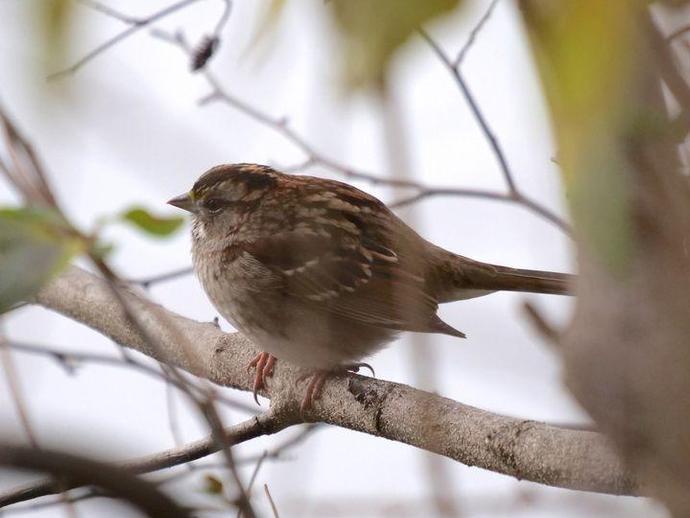December 17, 2021
Ben here with another edition of #BenInNature presented by our friends at Carter Bank & Trust!
The white-throated sparrow (Zonotrichia albicollis) may not look all that unusual, but its behavior is pretty unique!
White-throated sparrows come in two different plumage variations, known as the tan-striped and the white-striped. On white-striped sparrows, the feathers on the crown are black with a white central stripe, while on the tan-striped variety, the crown is dark brown with a tan central stripe (the bird in the photo appears to be of the tan-striped variety). These two color morphs occur in roughly equal numbers, and when it comes time to breed, these birds almost always pair off with an individual of the opposite color morph. Opposites attract, after all.
These sparrows breed in Canada and New England, but they fly south for the winter; you'll only find them in Virginia when the weather turns cold. The females migrate farther south than the males. This happens for a few reasons: one, the smaller females wouldn't perform as well at colder latitudes as the larger males; two, it allows the females to avoid competition with the dominant males; and three, by migrating farther south, the females will return to their breeding grounds later than the males, giving the males time to establish their territory.
If you'd like to see some white-throated sparrows yourself, they readily come to bird feeders. You'll often find them foraging on the ground in thickets or low vegetation, hunting for seeds, insects, and berries.
ABOUT #BenInNature
Social distancing can be difficult, but it presents a great opportunity to become reacquainted with nature. In this series of posts, Administrator of Science Ben Williams ventures outdoors to record a snapshot of the unique sights that can be found in the natural world. New updates are posted Monday - Friday, with previous posts highlighted on the weekends. This series of posts is made possible thanks to the support of VMNH Corporate Partner Carter Bank & Trust (www.cbtcares.com).
NATURE PHOTO IDENTIFICATIONS
If you discover something in nature that you would like help identifying, be sure to message us right here on Facebook with a picture (please include location and date of picture) and we'll have our experts help you identify it!

 Hours & Admissions
Hours & Admissions Directions
Directions

